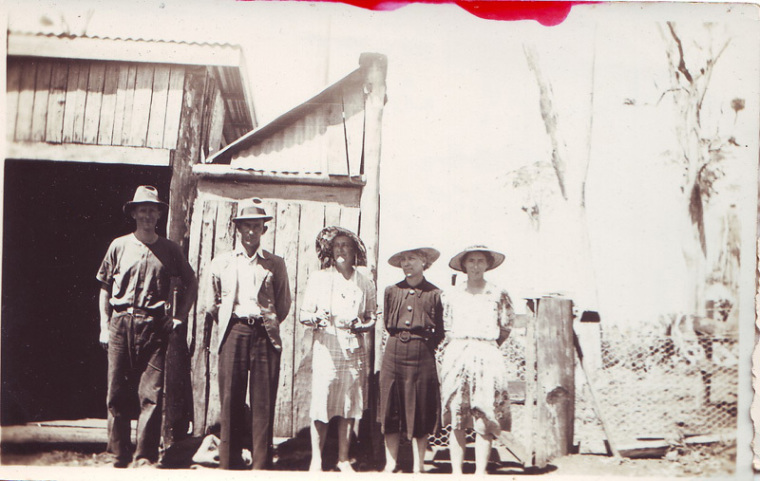
This is real and a critical part of our story - Australia, New Zealand and Britain.
In a fascinating article by the Sydney Morning Herald on the financial struggle of Sydney taxi drivers, many of the same comments and assessments can be given by missionaries.
The article cited taxi driver Mr Chhandra Sarker who works a 40-to-45 hour week and takes home up to $25,000 a year. He came to Australia from Bangladesh, where he ran a pharmacy and gained a post-graduate degree in management, in 2001. He restricts his hours to help look after his little tiny tot daughter.
Their lack of money for the basics and the necessities of life in Sydney suburban life seemed to be the centre piece of the article.
So too the WWII generation where money was tight, many on limited incomes and with a mind-set derived from the Great Depression where spending was geared to a critical analysis of every family’s disposable income.
In the ‘50s I can still recall how my parents very carefully weighed up on what to spend the available money on.
The rest of this article is drawing a parallel with the above, and faith financed missionaries.
Missionaries down through the centuries and into this modern era can identify very easily with how the Sydney taxi drivers have described their situation. Today in Australia there are 3000 faith financed missionaries and these raise their funding for both their family living and mission funding.

Income stream
A 'faith-financed missionary' in terms of an income stream; is not to be confused with those who are funded through a Missions organisation or self-funded through established financial arrangements.
The key term in such a definition is 'income stream'. The traditional understanding of someone who is a 'faith-financed missionary' is of someone dependent entirely on monetary gifts to enable them to fund their mission activity.
This definition excludes those who volunteer either part time or full time and using their own resources such as superannuation monies or investments to fund their mission activities.
An historic explanation is required for the faith-finance phenomena. A directive was given by Jesus to the disciples to take nothing with them as their needs will be supplied in Kingdom ministry. It was functioning in the first five centuries of the Christian era and then regained prominence in the Middle Ages, as illustrated by Francis of Assisi.
It gathered momentum with the protesters (Protestants) in the post-Reformation era and became entrenched in Puritanism theology in the 18th century by John Wesley's followers, who came to be known as the Methodists as they followed a method for church governance, ministry and mission.
Over the following three hundred years, 'Evangelicals' (emphasizing evangelism and strictly following the New Testament for their religious practice) took to 'faith-financed living' with a passion. You will meet 'faith-financed missionaries' anywhere, even in countries where you may least expect them.
An unexplainable joy

The extraordinary mindset of Christians which has enabled funding 'faith-financed missionaries' over many centuries. It is an expression of 'love' to give to the Lord's work, an unexplainable joy. This is magnified in the real world, by the building of trust when those who give receive regular communication from the faith-financed ministries, detailing how their money is put to use.
Mark and Delma Tronson, who has been faith-financed missionaries for 44 years, notes that the corollary is also just as critical. The 'faith-financed missionary' has the 'Gift of Faith' to enable him to rely safely on the Lord for his needs to be met. This is a specific Gift from the Lord, as the person in mission needs to concentrate on the Lord's work, not on material gain nor where the next dollar is coming from.
Jesus promised our "needs" would be met and that has proved sufficient over the centuries, and this is in tune with the sacrificial life of missionaries.
These components: The Givers in Faith and the receivers who have the Gift of Faith, function as an integral coherent unit of trust in the Lord's provision. There is a Biblical Kingdom supernatural principle which is difficult to explain and somewhat unfathomable, but the more one gives to the Lord with integrity of heart the more one receives in return in all manner of ways.
History shows and missionaries are frugal in their spending and they get by, raising and educating their children, and serving the Lord in the four quarters of the world.

Dr Mark Tronson - a 4 min video
Chairman – Well-Being Australia
Baptist Minister 45 years
- 1984 - Australian cricket team chaplain 17 years (Ret)
- 2001 - Life After Cricket (18 years Ret)
- 2009 - Olympic Ministry Medal – presented by Carl Lewis
- 2019 - The Gutenberg - (ARPA Christian Media premier award)
Gutenberg video - 2min 14sec
Married to Delma for 45 years with 4 children and 6 grand children